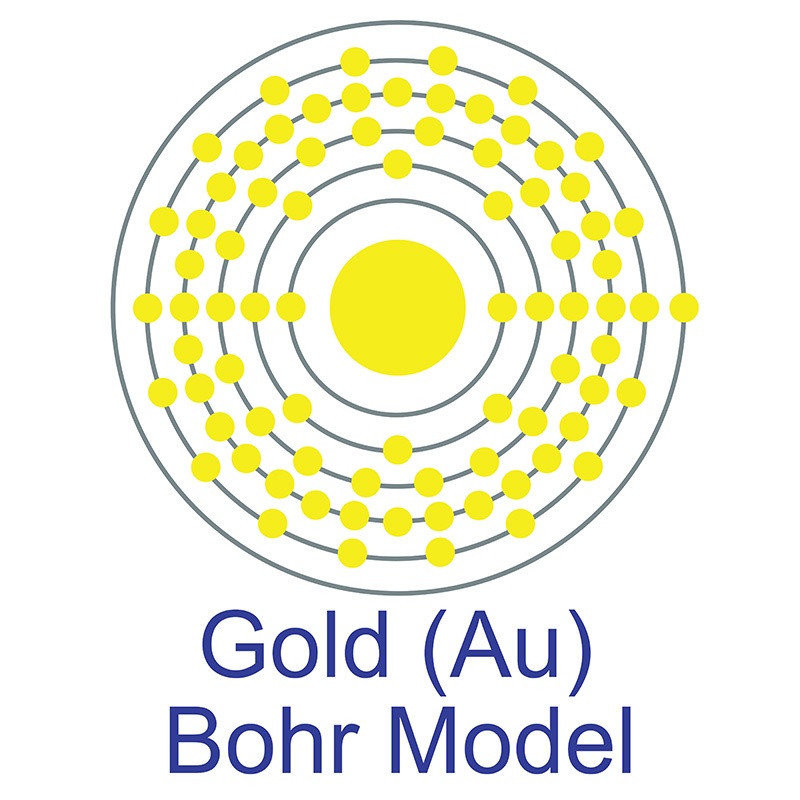See more Germanium products. Germanium (atomic symbol: Ge, atomic number: 32) is a Block P, Group 14, Period 4 element with an atomic weight of 72.63.  The number of electrons in each of germanium's shells is 2, 8, 18, 4 and its electron configuration is [Ar] 3d10 4s2 4p2. The germanium atom has a radius of 122.5 pm and a Van der Waals radius of 211 pm. Germanium was first discovered by Clemens Winkler in 1886. In its elemental form, germanium is a brittle grayish white semi-metallic element. Germanium is too reactive to be found naturally on Earth in its native state.
The number of electrons in each of germanium's shells is 2, 8, 18, 4 and its electron configuration is [Ar] 3d10 4s2 4p2. The germanium atom has a radius of 122.5 pm and a Van der Waals radius of 211 pm. Germanium was first discovered by Clemens Winkler in 1886. In its elemental form, germanium is a brittle grayish white semi-metallic element. Germanium is too reactive to be found naturally on Earth in its native state.  It is commercially obtained from zinc ores and certain coals. It is also found in argyrodite and germanite. It is used extensively as a semiconductor in transitors, solar cells, and optical materials. Other applications include acting an alloying agent, as a phosphor in fluorescent lamps, and as a catalyst. The name Germanium originates from the Latin word "Germania" meaning "Germany."
It is commercially obtained from zinc ores and certain coals. It is also found in argyrodite and germanite. It is used extensively as a semiconductor in transitors, solar cells, and optical materials. Other applications include acting an alloying agent, as a phosphor in fluorescent lamps, and as a catalyst. The name Germanium originates from the Latin word "Germania" meaning "Germany."
Materials
Materials by Form
2D Materials Alloy & Alloy Forms Pure Metals & Metal FormsCeramic FibersFoams: Metallic & Ceramic High Purity Materials Isotopes MXenesOxides Rare Earths Semiconductors Solutions
Chemicals & Salts
All Chemicals & Salts Acetates Aluminides Ammonium Sulfates Antimonides Arsenates Benzoate Bromates Bromides Carbonates Chlorides Chromates Fluorides Hydrides Hydroxides Iodates Iodides Lactates Molybdates Nitrates Oxalates Oxides Perchlorates Phosphates Selenates Selenides Selenites Silicates Stearates Sulfates Sulfides Sulfites Tantalates Tellurates Tellurides Tellurites ThiocyanatesVanadates
Ceramics
Nanomaterials
Organometallics
Materials by Application
Additive Manufacturing & 3D Printing Battery & Supercapacitor Materials Catalysts Dental Materials Electronics Materials Fuel Cell Materials Fusion EnergyGlass Manufacturing Green Technology & Alternative Energy Hydrogen Storage Laser Crystals Life Sciences & Biomaterials Metallurgy Nanotechnology & Nanomaterials Optical Materials Photovoltaic & Solar Energy Plating Pigments & Coatings Research & Development Space Technology Sputtering Targets Thin Film Deposition Water Treatment Weather Modification
Life Science Chemicals
Life Science Products AlcoholsAldehydesAmidesAminesAmino Acids & DerivativesAromaticsArylsAzetidinesBenzimidazolesBenzisoxazolesBenzodioxansBenzofuransBenzothiazolesBenzothiophenesBenzoxazolesCarboxylic AcidsEnzymes & InhibitorsEstersEthersFluorinated Building BlocksFuransHalidesImidazolesImidazolidinesIndazolesIndolesIndolinesIsoquinolinesIsoxazolesKetonesMorpholinesNaphthyridinesNitrilesOrganoboronOrganosiliconOxadiazolesOxazolesPharmaceuticals & IntermediatesPhenolsPhytochemicalsPiperazinesPiperidinesPyrazinesPyrazolesPyridazinesPyridinesPyrimidinesPyrrolesPyrrolidinesPyrrolinesQuinazolinesQuinolinesQuinoxalinesSpiroesSulfonyl ChloridesTetrahydroisoquinolinesTetrahydropyransTetrahydroquinolinesTetrazolesThiadiazolesThiazolesThiazolidinesThiolsThiophenesTriazinesTriazoles
About Us
Locations
Austria Belgium Brazil Canada China & Hong Kong Czech Republic Denmark Finland France Germany Greece Hungary India Indonesia Israel Italy Japan Malaysia Mexico Netherlands Norway Philippines Poland Portugal Russia Singapore South Korea Spain Sweden Switzerland Taiwan Thailand Turkey United Kingdom United States
Industries
Aerospace Agriculture Automotive Chemical Manufacturing Defense Dentistry Electronics Energy Storage & Batteries Fine Art Materials Fuel CellsFusion Energy Glass Investment Grade Metals Jewelry & Fashion Lasers Lighting Medical Devices Museums & Galleries Nuclear Energy Oil & Gas Optics Paper & Pulp Pharmaceuticals & Cosmetics Research & Laboratory Robotics Solar Energy Space Sports Equipment Steel & Alloy Producers Textiles & Fabrics Water Treatment Municipalities
Follow Us
 The gold atom has a radius of 144 pm and a Van der Waals radius of 217 pm. Gold was first discovered by Early Man prior to 6000 B.C. In its elemental form, gold has a metallic yellow appearance. Gold is a soft
The gold atom has a radius of 144 pm and a Van der Waals radius of 217 pm. Gold was first discovered by Early Man prior to 6000 B.C. In its elemental form, gold has a metallic yellow appearance. Gold is a soft  It is a good conductor of heat and electricity, and is unaffected by air and most reagents. It is one of the least reactive chemical elements. Gold is often found as a free element and with
It is a good conductor of heat and electricity, and is unaffected by air and most reagents. It is one of the least reactive chemical elements. Gold is often found as a free element and with 